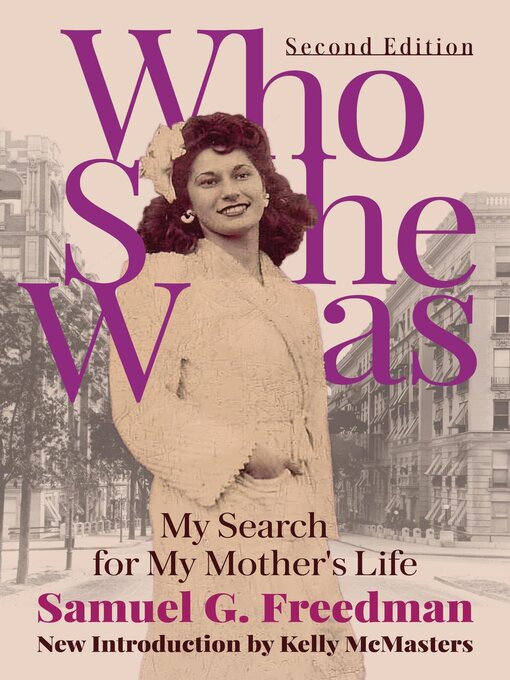*Second Edition, with a new Introduction by Kelley McMasters
When Samuel G. Freedman was nearing fifty, the same age at which his mother died of breast cancer, he realized that he did not know who she was. Of course, he knew that Eleanor had been his mother, a mother he kept at an emotional distance both in life and after death. He had never thought about the entire life she lived before him, a life of her own dreams and disappointments. And now, that ignorance haunted him.
So Freedman set out to discover the past, and Who She Was is the story of what he found—the story of a young woman's ambitions and yearnings, of the struggles of her impoverished immigrant parents, and the ravages of the Great Depression, Word War II and the Holocaust.
It is also the story of a middle-aged son wracked with regret over the disregard he had shown as a teenage boy for a terminally ill mother, and as an adult incapable for decades of visiting her grave. By asking all the questions he had not asked when his mother was alive, Freedman is able to find peace with his regrets.
Researched as a history, written like a novel, Who She Was brings a compassionate yet unflinching eye to the American Jewish experience. It recaptures the working-class borough of the Bronx with its tenements and pushcarts, its union halls and storefront synagogues and rooftop tar beaches. In such a world, Eleanor Hatkin came of age, striving for education, for love, for a way out.
What the critics say:
"Samuel Freedman's Who She Was is a tribute to both its subject—the power of motherhood and the mysteries of familial love—and its readers; beautifully written, deeply moving, this memoir is not only a delightful read, but it is also a testament to how every life is a living and memorable embodiment of the past and history. One feels the author's affection and wonderment for his subject on every page." —Oscar Hijuelos, author of The Mambo Kings Play Songs of Love
"Terrifically intimate... A son's story, a Jewish story, an American story."—Kirkus Reviews
"Who She Was is a precise, meticulous re-creation of a woman's experience that attempts—as does all great literature—to take a stand against time and loss and insignificance. Within the pages of what the author humbly calls this 'imperfect, impermanent reincarnation,' a young woman, an era, and a culture now lost are restored through diligent research, eloquent prose, and a son's tender impulse to redeem his mother's brief life." —Alice McDermott, author of Child of My Heart
